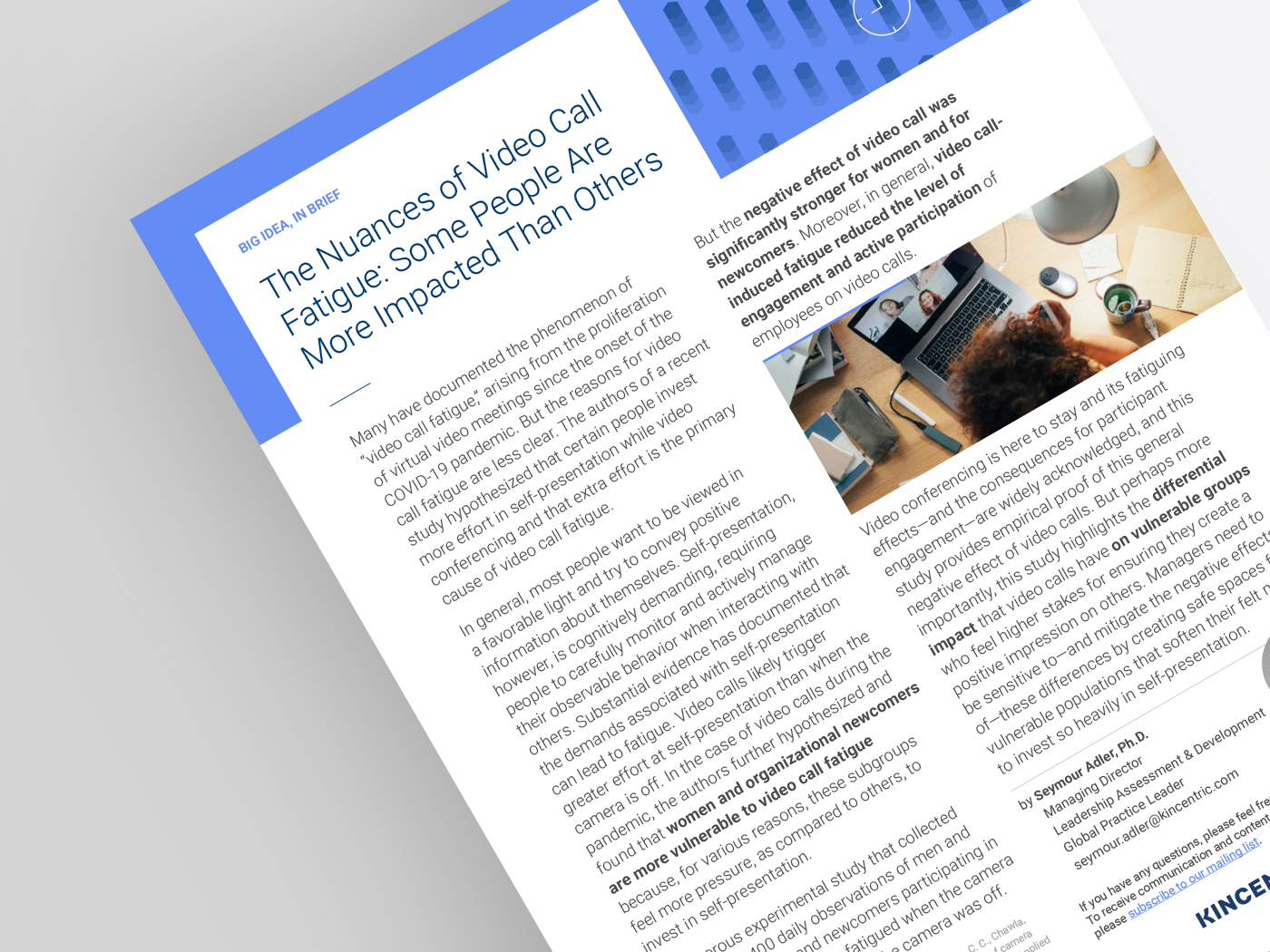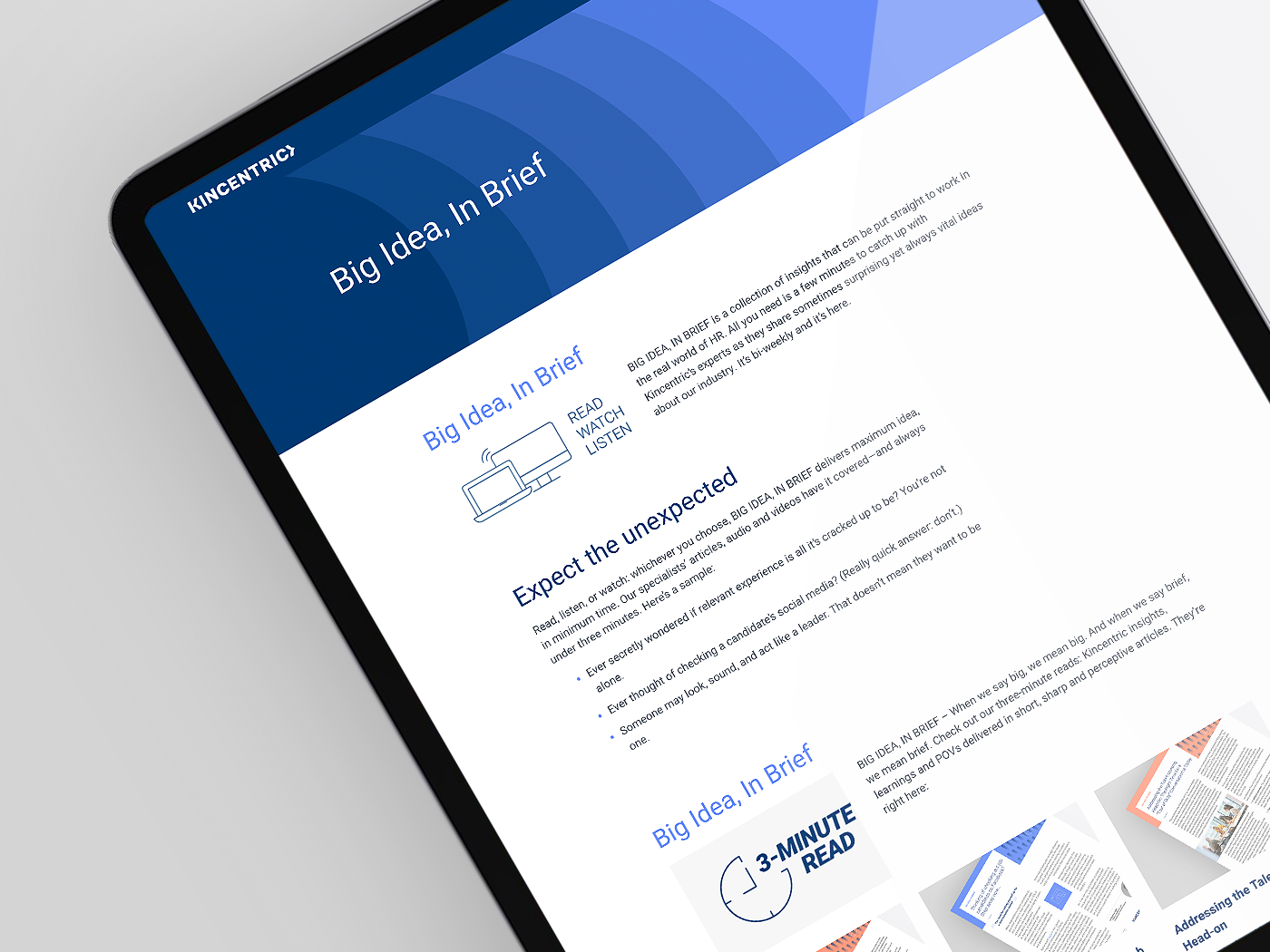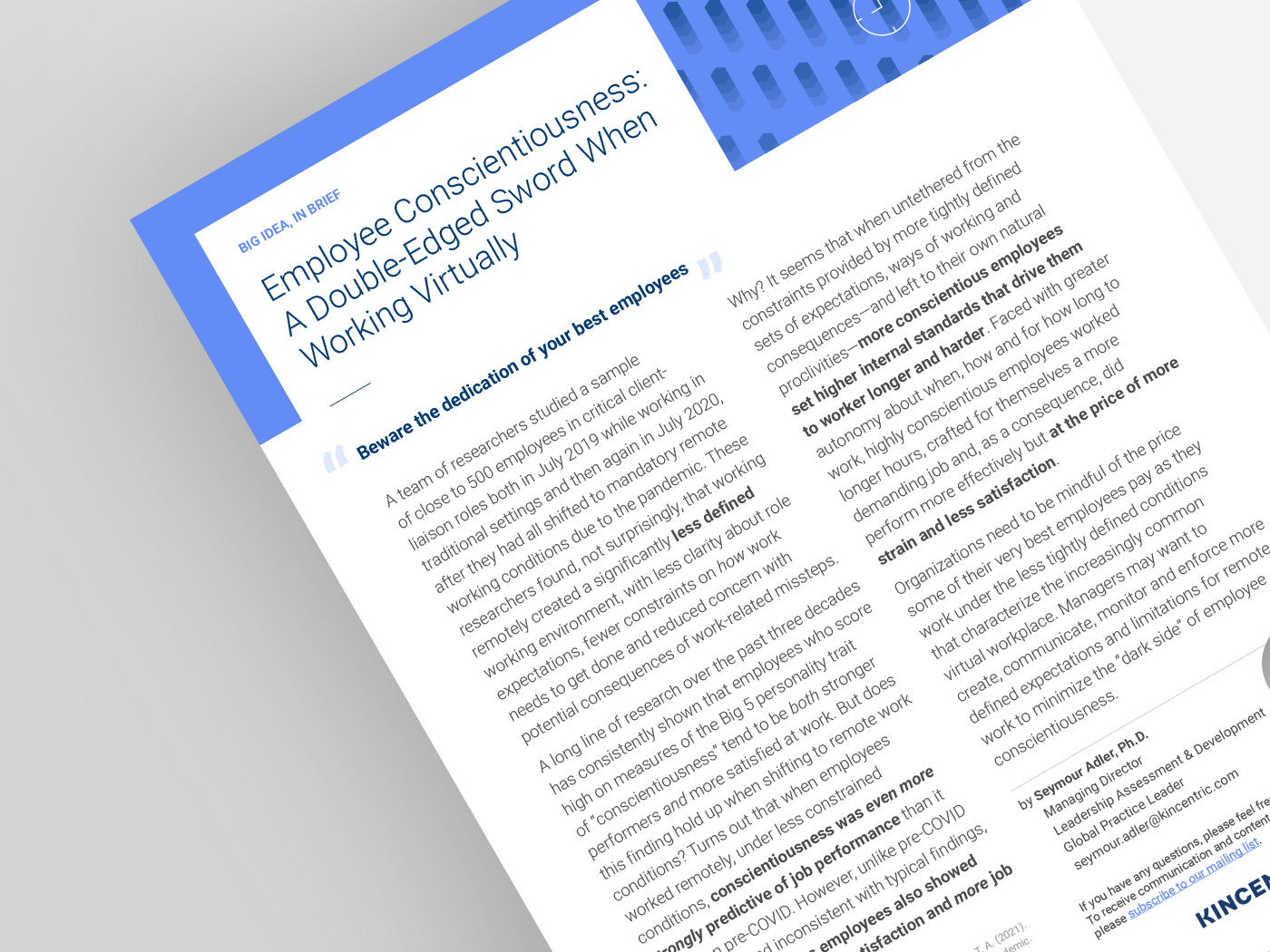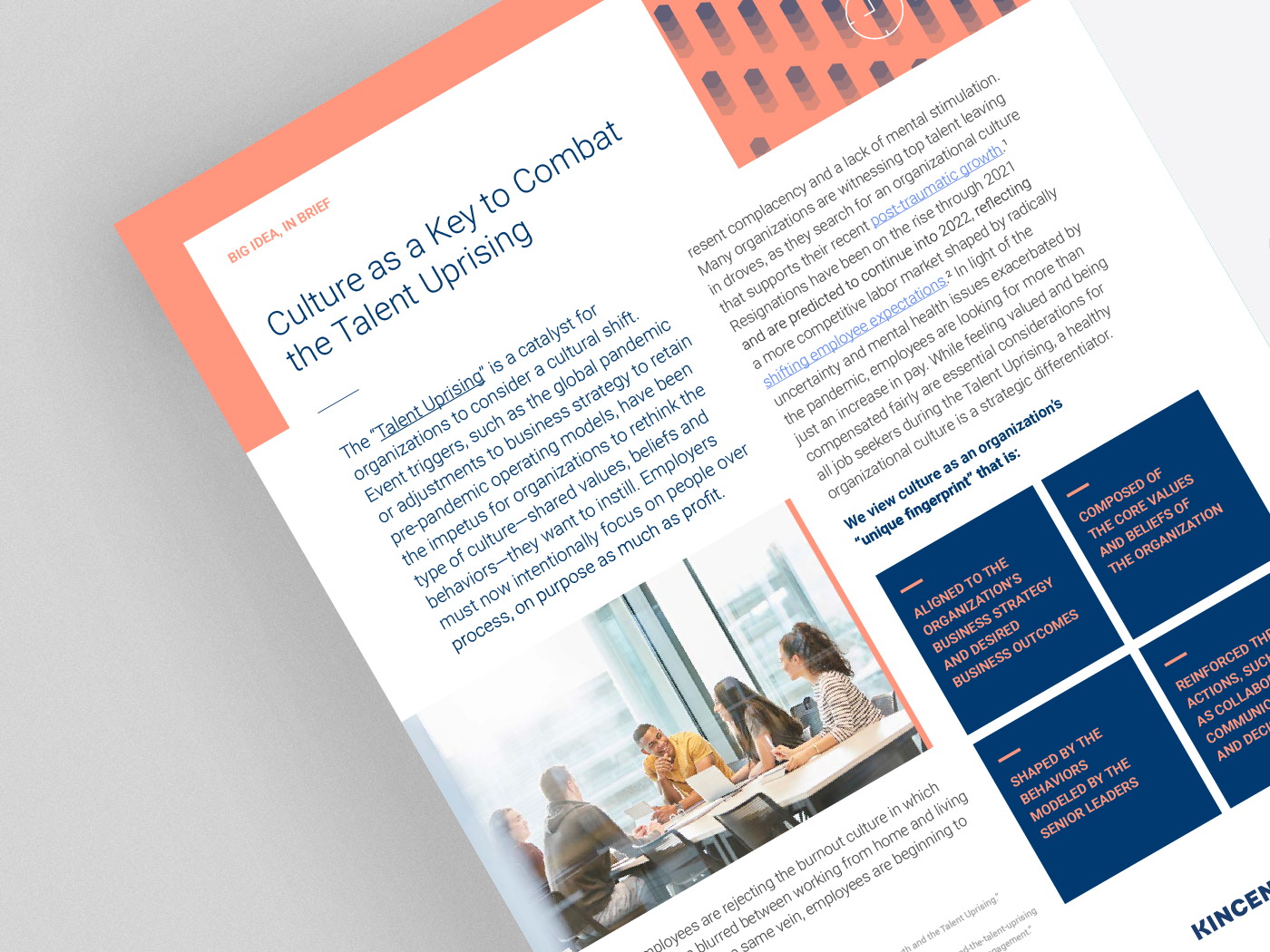
Many have documented the phenomenon of “video call fatigue,” arising from the proliferation of virtual video meetings since the onset of the COVID-19 pandemic. But the reasons for video call fatigue are less clear. The authors of a recent study hypothesized that certain people invest more effort in self-presentation while video conferencing and that extra effort is the primary cause of video call fatigue.
In general, most people want to be viewed in a favorable light and try to convey positive information about themselves. Self-presentation, however, is cognitively demanding, requiring people to carefully monitor and actively manage their observable behavior when interacting with others. Substantial evidence has documented that the demands associated with self-presentation can lead to fatigue. Video calls likely trigger greater effort at self-presentation than when the camera is off. In the case of video calls during the pandemic, the authors further hypothesized and found that women and organizational newcomers are more vulnerable to video call fatigue because, for various reasons, these subgroups feel more pressure, as compared to others, to invest in self-presentation.
In a rigorous experimental study that collected more than 1400 daily observations of men and women, veterans and newcomers participating in team calls, all felt more fatigued when the camera was on compared to when the camera was off.
But the negative effect of video calls was significantly stronger for women and for newcomers. Moreover, in general, video call-induced fatigue reduced the level of engagement and active participation of employees on video calls.
Video conferencing is here to stay and its fatiguing effects—and the consequences for participant engagement—are widely acknowledged, and this study provides empirical proof of this general negative effect of video calls. But perhaps more importantly, this study highlights the differential impact that video calls have on vulnerable groups who feel higher stakes for ensuring they create a positive impression on others. Managers need to be sensitive to—and mitigate the negative effects of—these differences by creating safe spaces for vulnerable populations that soften their felt need to invest so heavily in self-presentation.
Source: Shockley, K. M., Gabriel, A. S., Robertson, D., Rosen, C. C., Chawla, N., Ganster, M. L., & Ezerins, M. E. (2021). The fatiguing effects of camera use in virtual meetings: A within-person field experiment. Journal of Applied Psychology, 106(8), 1137–1155. https://doi.org/10.1037/apl0000948.



Want the latest insights delivered straight to your mailbox?